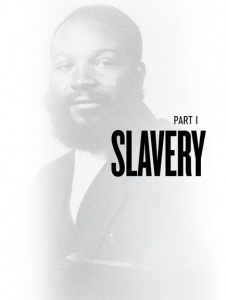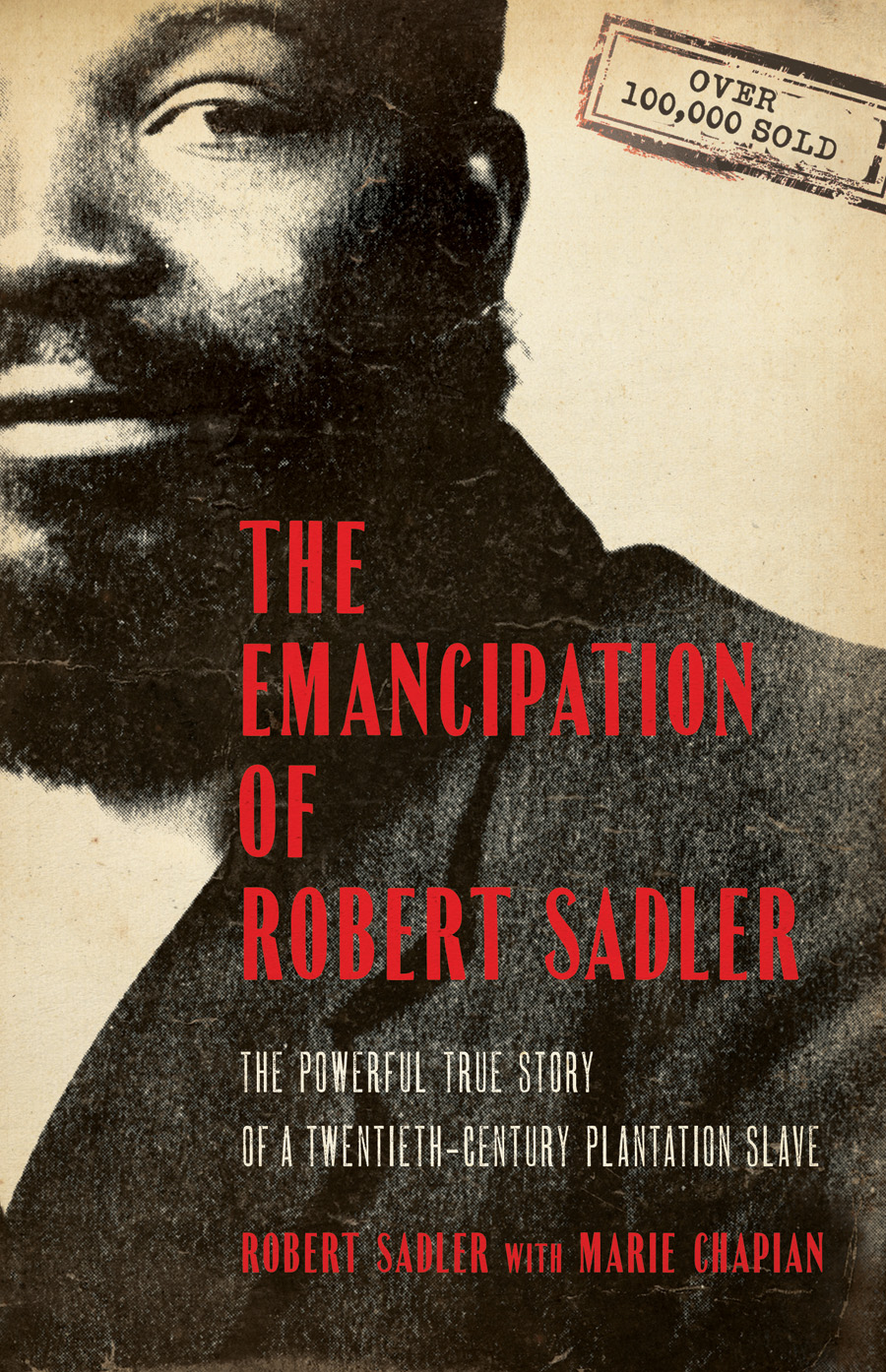Having grown up in the Southern United States, I’m well aware of the prejudices that still grip the people in that region even to this day. I was not aware of how recently slavery was still a part of life in the deep south, though. Robert Sadler was a product of the post Emancipation Proclamation era of slavery.
About The Emancipation of Robert Sadler, updated edition: The Powerful True Story of a Twentieth-Century Plantation Slave
by Marie Chapian and Robert Sadler
A Gritty, Raw Real-Life Tale That Will Both Shock and Inspire You
So many thoughts twirl in my head…I want to think back as far as I can remember–think on things I had long ago buried and let stay buried. There were things I never told anyone. Now is the time to tell it, though. Help me remember it, Lord, so I can tell it just the way it was.
Over fifty years after the Emancipation Proclamation, Robert Sadler was sold into slavery at the age of five–by his own father. Originally published in 1975, this is the no-holds-barred tale of those dark days, his quest for freedom, and the determination to serve others borne out of his experience. You won’t forget this poignant true story of good triumphing over evil, of God’s grace, and of an extraordinary life of ministry.
My Review
Marie Chapian has done a great job of capturing Robert’s story, in all of its raw and sweet reality. The book begins with Robert’s earliest memories – and those memories aren’t pleasant. When he is sold into slavery, not just once but TWICE, my heart ached for he and his family.
As Robert struggled through the awful world of a plantation worked by slaves, the pain and abuse he endured and saw others endure is almost unbelievable. The slave owners didn’t even view their slaves as human, so the beginning of Robert’s story demonstrates how fully and completely people can be prejudiced. It made me physically ill to read about.
Robert had people of faith around him throughout his whole life, and seeds of that faith were planted in his heart along the way. In spite of being considered a backward and dumb black boy, Robert seemed to me to be clever. Anybody who could live in the system of plantation rules, with hundreds of do’s and don’ts, would have to have some wits about them, or they would have been killed. The trauma of his early life had caused speech issues, and later abuse by other slaves left him deaf in one ear. But Robert always had a hunger for learning, ever since his mother had told him he needed to learn to read so he could read the Bible. It was one of the last things he could remember her telling him before she died.
One Sunday, Robert escapes the plantation, by the grace of God. It had to be a divine intervention of some kind because he simply walked off the plantation. His life from there on was a series of ups and downs. He quickly realized that people living off the plantations as ‘free’ men were no more free than he had been as a slave. Life was hard in the south, especially for those of colour.
Through many turns and many bad decisions, Robert finally ends up committing his whole life to God. Robert was able to get a basic education at a school specifically for young black men, and it was a huge turning point in his life. God had obviously kept him alive and brought him through many situations, and Robert felt more and more like the Lord was leading him in specific directions.
Travelling ministry was where he spent most of his time, driving to where there were needs and ministering to the broken people there. What I found so beautiful about this part of his story was that Robert was always so unassuming and humble, and never considered himself very intelligent, and yet the Lord used him in tremendous ways. Because of Robert’s innocence and sincerity, he was something of a blank slate that God took and wrote His story on. The Lord spoke, Robert listened and followed the leadings, and the Lord moved in mighty ways through Robert’s obedience.
Often one life at a time, one family at a time, and sometimes one small church or one small town at a time, Robert brought healing to people’s lives by shining the light of Christ into their hearts. He always shared the Gospel because he genuinely believed that Jesus would make all the difference. He saw many of his own family members and fellow freed slaves brought into the Kingdom.
Miracles happened around Robert often, from cars running when completely out of gas or driving for hundreds of miles without a transmission, to money showing up at the right time, from Robert being in the right place at the right time, to him being clearly protected when he was in the wrong place at the wrong time. Robert shares those stories very unpretentiously, and without fanfare. They happened, they are part of his story, and he shares them as easily as he shared his early life stories. Simple as that.
A surprising part of the story was that after coming out of slave life, where every day was a scrape and no meal was ever filling, Robert spent much of his hard-earned money on food. He developed what we would today call an eating disorder. FINALLY he could eat just about whatever he wanted, whenever he wanted, and as much of it as he could afford. The insecurity of life as a slave led to this need for food. With the stability of the Lord in his life, and later with a loving wife, that insecurity went away, but Robert always did enjoy food, a real treasure after not having any for so long.
 As I read the book, I found it very easy to transition between the well-written, grammatically correct narration of the story, and the dialogue of colourful language common to southern plantations. Because I’ve heard people talk much like the people in the story, their conversations, in their vernacular, were not difficult for me to decipher. Reading a few of the phrases to my daughter, she did find it tricky to make out some of the words, and to figure out what they were trying to say. I wonder if other readers, not familiar with the language and ‘drawl’ of southern talkers, would find the dialogue tricky, too. I thought it was a very clever and genuine way to share the story, and made Robert’s world even more real to me.
As I read the book, I found it very easy to transition between the well-written, grammatically correct narration of the story, and the dialogue of colourful language common to southern plantations. Because I’ve heard people talk much like the people in the story, their conversations, in their vernacular, were not difficult for me to decipher. Reading a few of the phrases to my daughter, she did find it tricky to make out some of the words, and to figure out what they were trying to say. I wonder if other readers, not familiar with the language and ‘drawl’ of southern talkers, would find the dialogue tricky, too. I thought it was a very clever and genuine way to share the story, and made Robert’s world even more real to me.
Robert’s story is first heart-breaking and tragic, and then inspiring and touching. That anyone can endure what he did, and still be soft-hearted enough for the Lord to be able to use him is simply amazing. Many men who walked similar paths turned hard and bitter, but Robert’s simplicity and the faith showered on him by key people in his life, laid the foundation for a great ministry.
The Emancipation of Robert Sadler is quite detailed, but not gory, in the depiction of the awful life of the slaves. Robert shared a part of history I was really unaware of – that history was still in effect quite a long time after the slaves had been legally freed by the Emancipation Proclamation. I’m sure very few of us have ever heard about Robert’s life as a minister, even though it was, by all accounts, a successful and vibrant ministry, touching many thousands of people over Robert’s lifetime. Reading The Emancipation of Robert Sadler has opened my eyes to a new world I never knew existed, and has inspired me to listen to God more. I do think that adult readers interested in seeing how the Lord can change such a broken life for His purposes will really enjoy this book.
Book has been provided courtesy of Baker Publishing Group and Graf-Martin Communications, Inc. Available at your favourite bookseller from Bethany House, a division of Baker Publishing Group








Thanks for sharing! Really looking forward to reading this one!